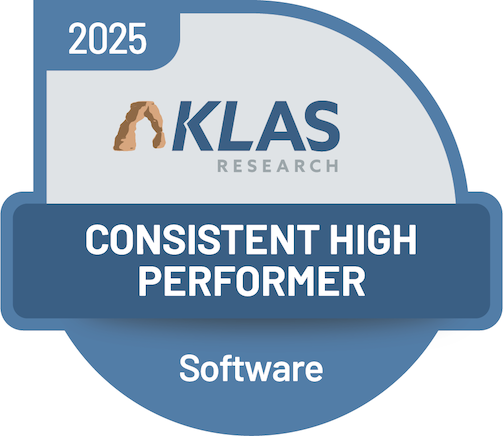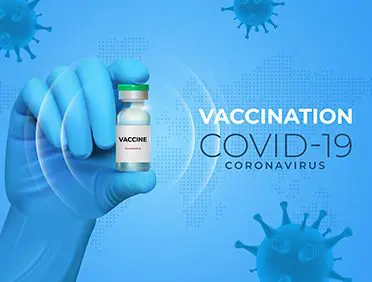
Survey: How Many Americans Will Get a COVID-19 Vaccination?
From working to socializing, COVID-19 has altered the way we live our lives. Words like “social distancing” and “quarantine” have become commonplace since the pandemic broke out and we have learned how to adapt to living under a “new normal” until a COVID-19 vaccine is developed.
As a health data management firm, Harmony Healthcare IT was curious to learn how many Americans would agree to receiving a COVID-19 vaccination if an effective one was produced. We surveyed 2,000 Americans to get a better understanding of the public’s views on a potential vaccine, who should be vaccinated first and when they expect a return to normalcy. Considering the impact of flu season during the pandemic, we also asked respondents whether they intend to or have already gotten a flu shot. For context, we analyzed 10 years of flu shot coverage data by state.
COVID-19 Vaccine
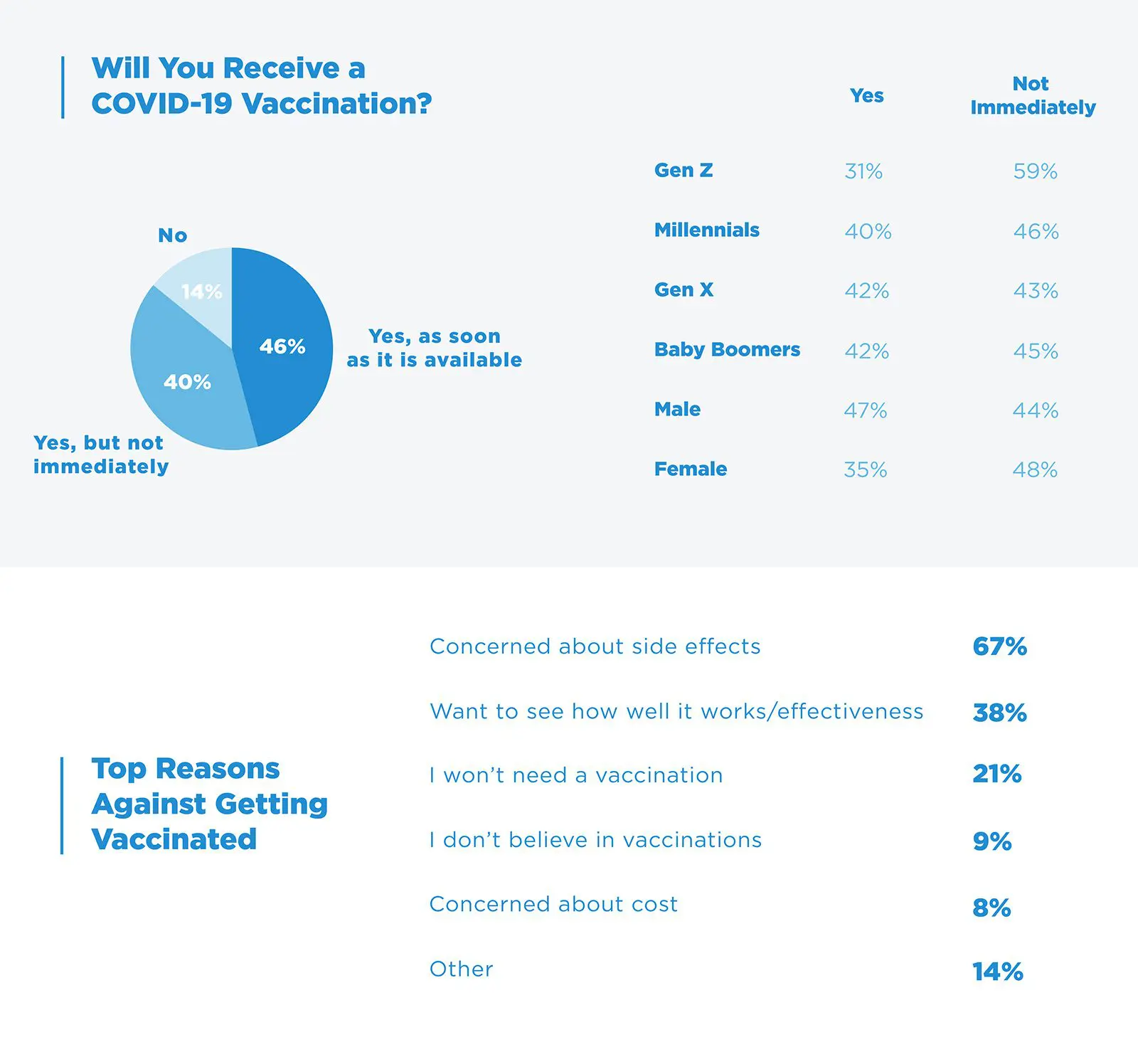
Pharmaceutical and biotechnology companies like Pfizer, Moderna and AstraZeneca have shown promising results for vaccine candidates, but even if a vaccine is developed, a larger hurdle will be to get buy-in from the public to receive it.
According to survey respondents, 46% say they would receive a COVID-19 vaccination “as soon as it is available.” Others say they would like to receive a vaccination (40%) but prefer to see how effective and safe it is before receiving it. The remaining 14% say they will not receive a vaccine under any circumstances. Concerns about potential side effects were the main reason why respondents said they wouldn’t be vaccinated.
In terms of generational differences, Gen X and baby boomers were the most likely to say they would receive a vaccination as soon as they could while Gen Z were the least likely. Males were also more likely than females to say they would be vaccinated as soon as they could.
When Will a COVID-19 Vaccine be Produced?
While there are no guarantees, many Americans feel that it’s a matter of time before a vaccine is developed. A majority (54%) feel that a vaccine will be produced within one year. However, producing a vaccine and deploying a vaccine are two different obstacles and it will most likely take time before everyone receives it.
According to respondents, 27% believe they will be able to be vaccinated within 3-6 months of a vaccine being developed and 26% believe it will take 6 months to one year.
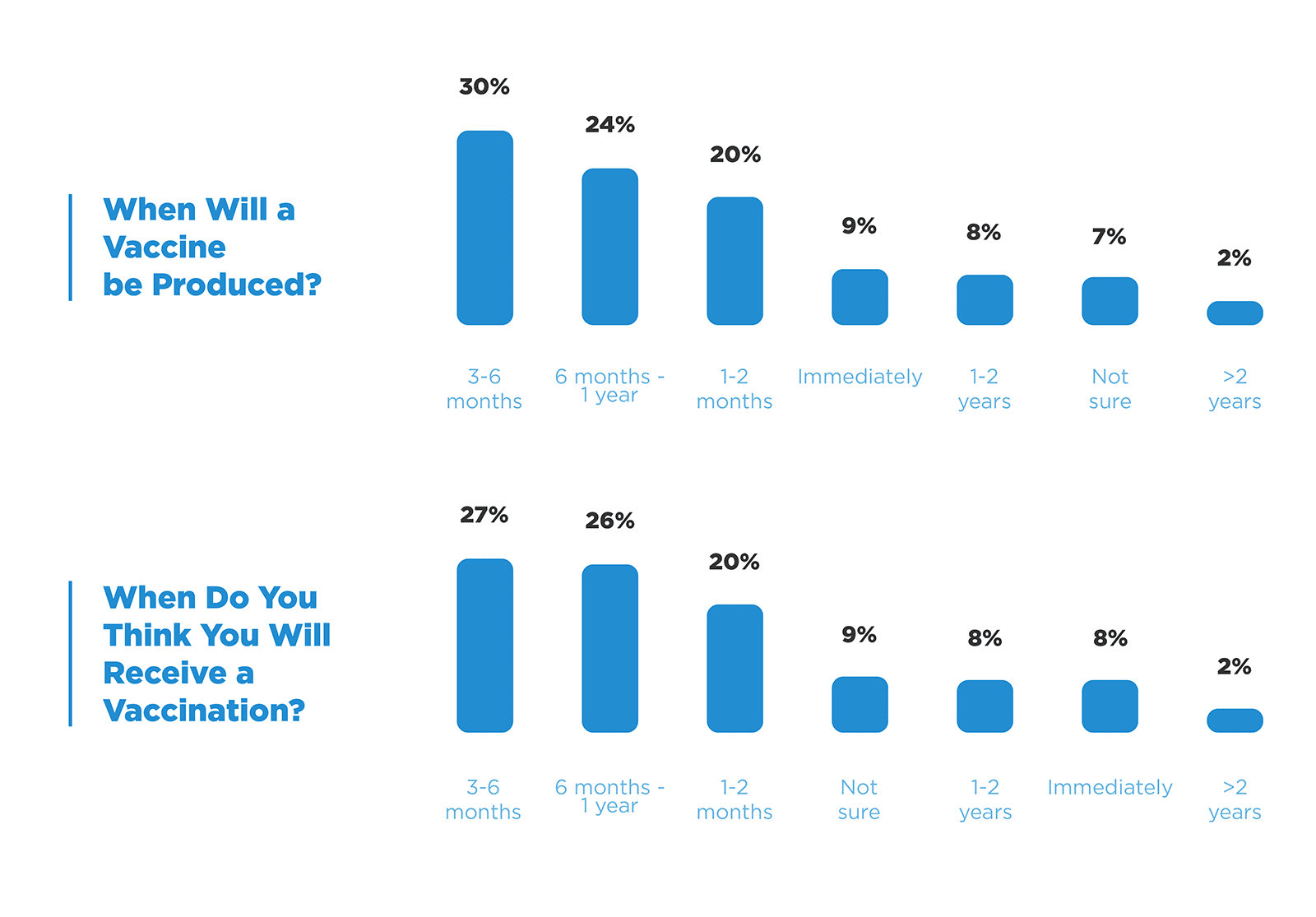
Who Should be Vaccinated First?
Most respondents (50%) agree that the most vulnerable and susceptible populations should be the first to receive a vaccination. According to Centers for Disease Control and Prevention (CDC), adults of any age with underlying medical conditions such as cancer, COPD (chronic obstructive pulmonary disease), heart disease and severe obesity, among other conditions, are at increased risk of developing severe illness from COVID-19.
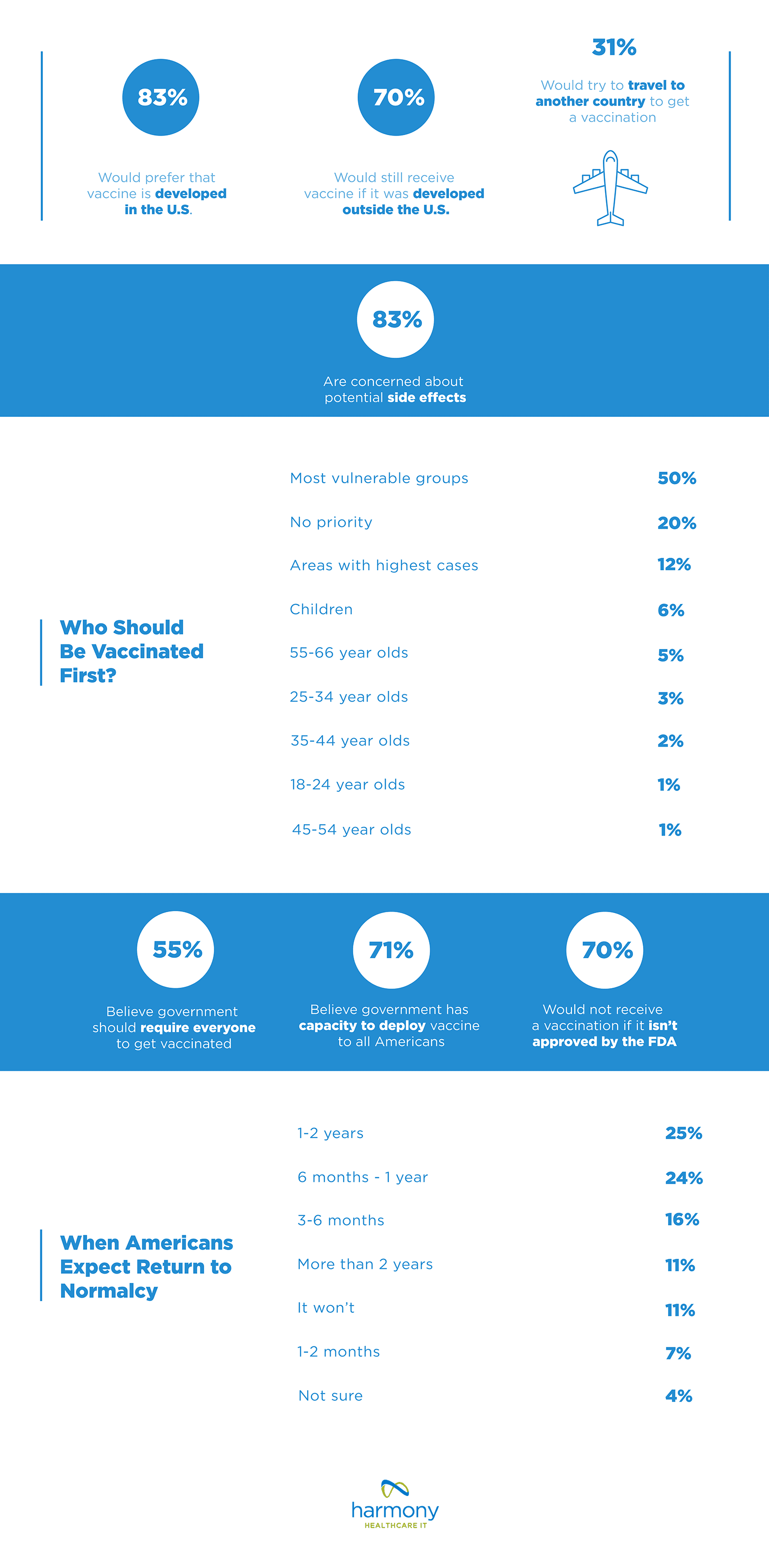
Most respondents (55%) also agree that the federal government should require or mandate all Americans to receive a vaccination and 71% believe that the government has the capacity to deploy a vaccine to everyone.
Return to Normalcy
From concerts and movies, to family reunions and weddings, it’s fair to say that Americans are eager to get back to pre-pandemic life. But a return to normalcy hinges on an effective vaccine that can be deployed to the public. Once Americans are vaccinated, a quarter of respondents feel that it will still take between 1-to-2 years before a return to normalcy while 24% believe it will happen sooner (6 months to a year).
COVID-19 and Flu Season
Infectious disease experts have raised concerns over increased COVID-19 infections and the flu season, which could overwhelm hospitals if Americans do not take precautions.
One of the most effective ways to take precautions this flu season is to receive a flu shot, according to health experts. Harmony Healthcare IT analyzed CDC flu vaccination coverage in every state to see where Americans are receiving a flu shot.
Which States are Getting Flu Shots?
According to the CDC, a flu shot is recommended for adults 18-64 who are at increased risk for pneumococcal disease and all adults over 65. The map above shows the most recent data for flu shot coverage for these populations. Vermont, Oregon, Washington, Michigan and New Hampshire are the top five states with the highest flu shot coverage percentages. Meanwhile, Florida, New Jersey, Hawaii, Mississippi and Alaska are the bottom five states with the lowest flu shot coverage percentages.
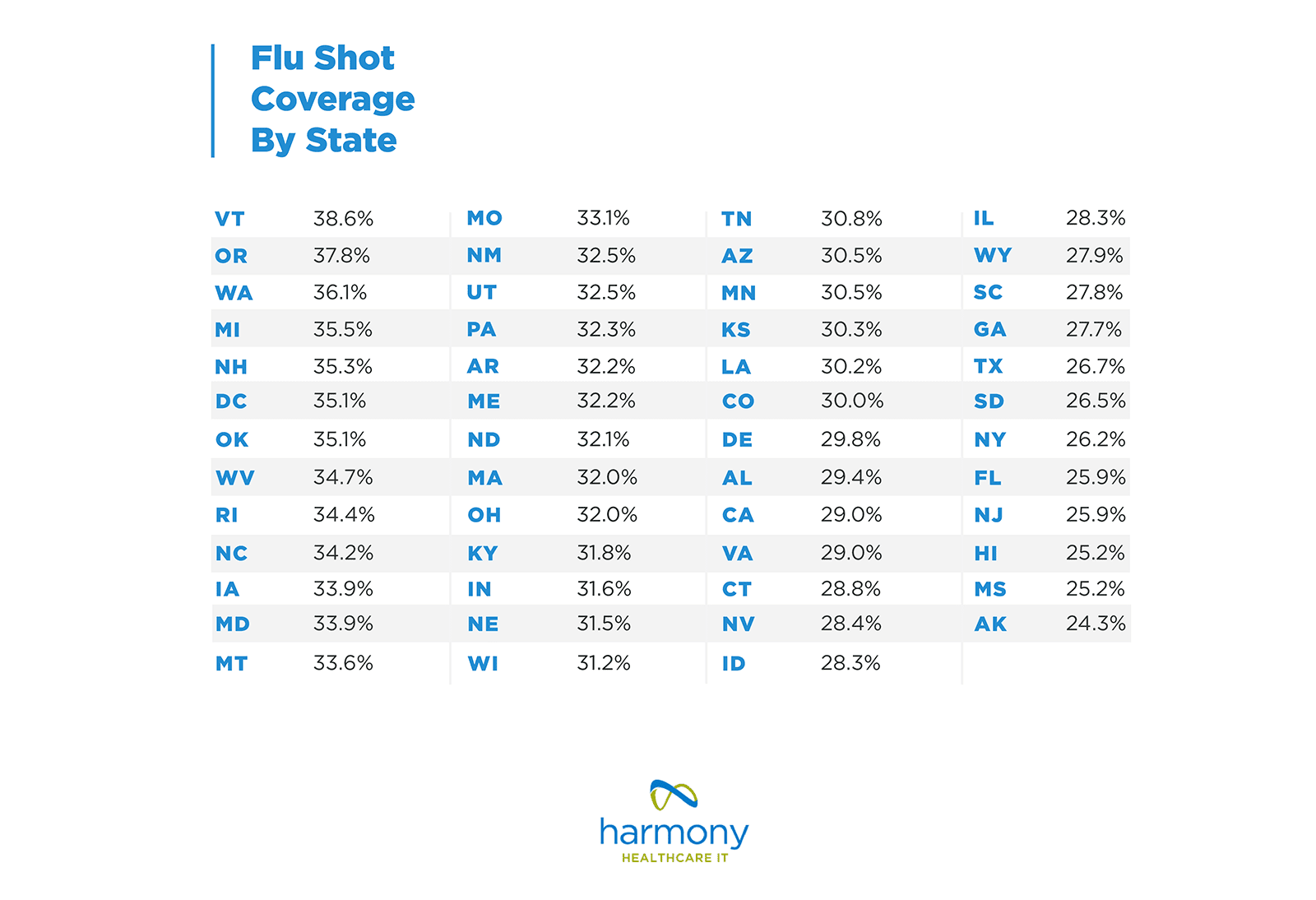
Harmony Healthcare IT also analyzed flu shot coverage data by state from 2008 to 2018, which allowed us to determine the average annual increase and decrease in each state. Washington D.C., Iowa, Idaho, Connecticut and North Carolina are the top five states with the largest annual increase in flu vaccinations. Alaska, South Carolina, Florida, Alabama and New York are the bottom five states with the largest decrease in flu vaccinations.
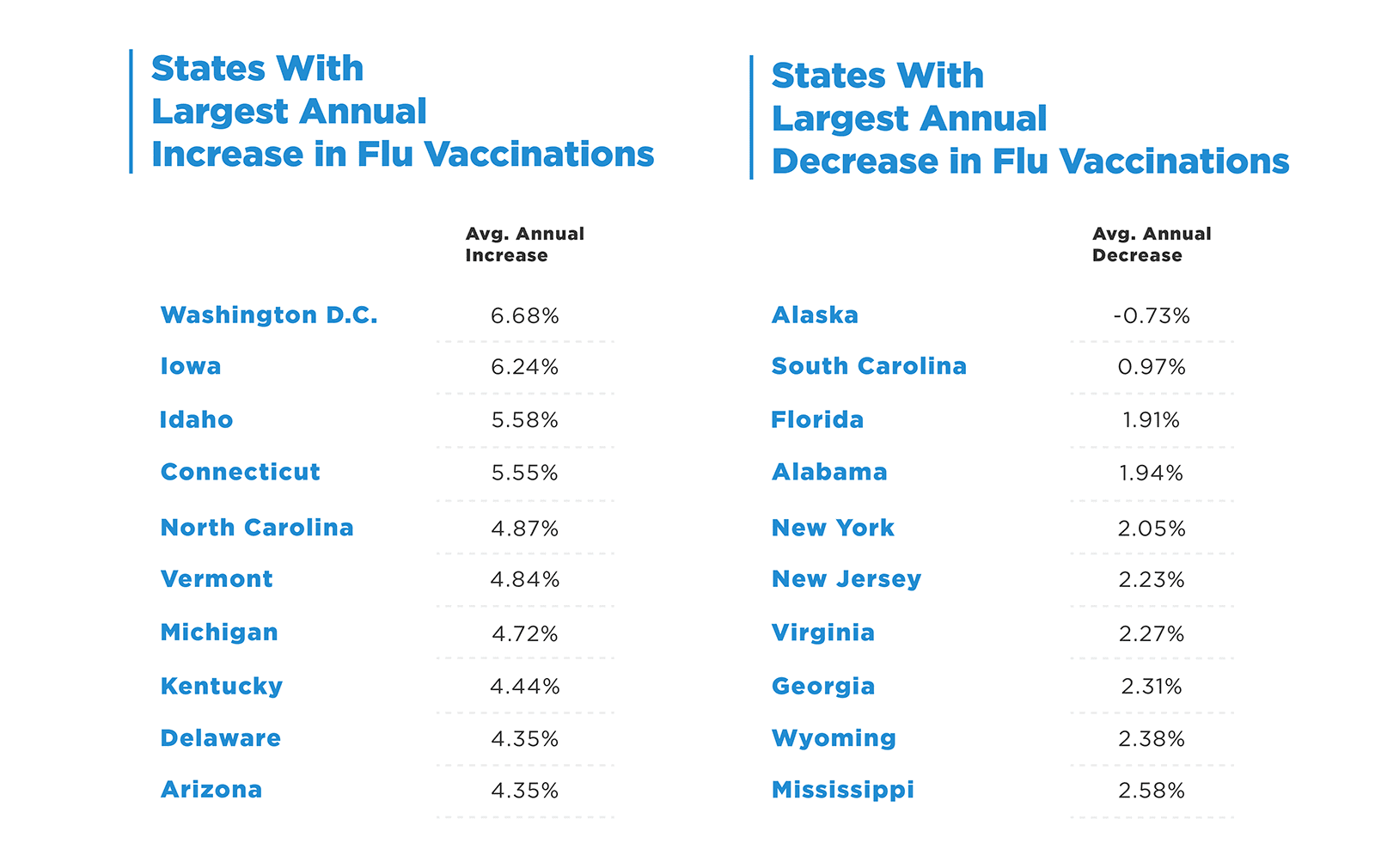
According to respondents, 47% have already received a flu shot this year and a quarter intend to receive one. A total of 42% say they have gone two years or more without receiving a flu shot.
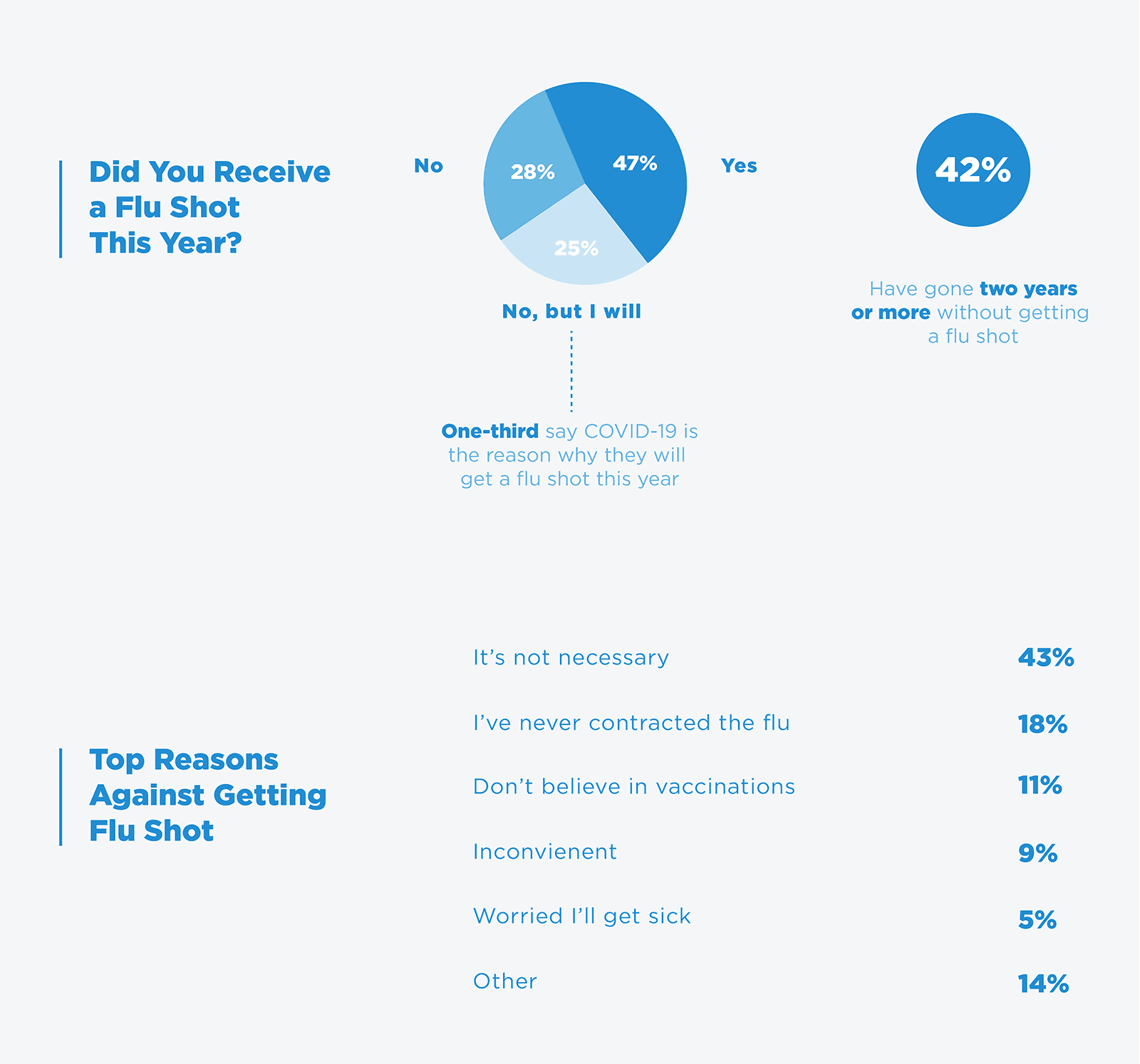
It’s difficult to estimate when the public can expect a return to normalcy, but it’s clear many Americans are hopeful that an effective vaccine will be developed. In the meantime, Americans can take precautions, follow CDC guidelines and get their annual flu shot in order to keep themselves, their family and their neighbors safe.
Methodology
From November 1 to November 5, 2020, we surveyed 2,006 Americans on the topic of a potential COVID-19 vaccine. Of those respondents, 55% were female and 45% were male and the median age was 38. Income: Under $20K: 15%; $20-40K: 22%; $40-60K: 25%; $60-80K: 21%; $80-100K: 9%; Over $100K: 8%.
Employment status: Full-time: 67%; part-time: 14%; seeking opportunities: 5%; unemployed due to COVID-19: 3%; unemployed not due to COVID-19: 6%; furloughed: 1%; retired: 4%.
Source: Pneumococcal vaccination coverage data via Centers for Disease Prevention and Control.
For media inquiries, contact media@digitalthirdcoast.net.



